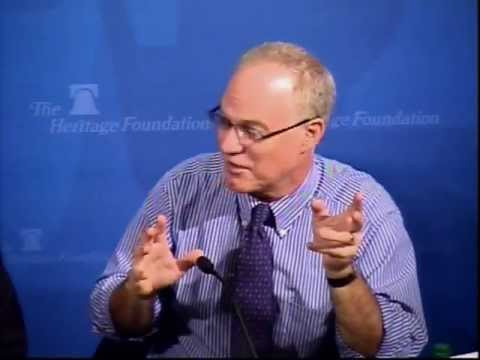Baku, Azerbaijan, Jan.13
By Dalga Khatinoglu - Trend:
The former deputy for nonproliferation policy in the U.S. defense department believes that coming to a resolution of the disputes between Iran and P5+1 around the country's uranium enrichment capabilities, one demand must give into the other.
Iran's Foreign Minister Mohammad Javad Zarif and the U.S. Secretary John Kerry have scheduled to meet in Geneva on Jan.14.
The head of Atomic Energy Organization of Iran (AEOI) Ali Akbar Salehi said on Jan.12 that Iran needs 30 tons of 3.5%-enriched nuclear fuel annually, while the current production level is 2.5 tons. "But, the western countries' demand is limiting this level more and more, as well as converting the current stockpile of 3.5 percent-enriched uranium to fuel".
Responding to the question, "what can be a consensual position between Iran and P5+1 to resolve the enrichment level dispute with less political consequences inside Iran", Henry D. Sokolski who served as the deputy for Nonproliferation Policy in the Secretary of Defense told Trend Jan.13 that "the differences between the limits needed on Iran's uranium enrichment capacity to assure it can't make a bomb in 12 months and the capacity Iran needs to fuel its light water reactor program, which the P 5+1 have grandfathered, is too great to be bridged".
Sokolski who currently serves as executive director of the Nonproliferation Policy Education Center believes that " One demand must give into the other".
John Kerry said Jan.12 that he hopes that the negotiations on the Iranian nuclear program with the "Six" international mediators will accelerate after he meets with Iranian Foreign Minister Javad Zarif in Geneva.
Iran and P5+1 (the five permanent members of the UN Security Council comprising of China, France, Russia, Britain, the US Plus Germany) sealed an interim deal in Geneva on November 24,2013 to pave the way for the full resolution of the West's decade-old dispute with Iran over the country's nuclear energy program.
The Geneva deal took effect on January 20 and expired on July 20.
However the two sides agreed to extend their talks for four months until Nov. 24 to reach a permanent deal on Iran's disputed nuclear program.
At a meeting held on November 24, 2014, the sides agreed to extend the talks for further seven months.
The implementation time of the comprehensive nuclear deal is another dispute between Iran and the West, which wants it long- two decades.
Former deputy of IAEA director Olli Heinonen told Trend on Jan.6, "Due to the history of Iran nuclear activities, the verification (the peaceful goals of Iran's nuclear program) will take years; perhaps 3-5 years depending on the cooperation provided by Iran, and the findings of the IAEA.
Amid the huge gap between Iran and P5+1, new information is emerging about the country's involvement in Syria's nuclear activities.
Spiegel reported Jan.9 that Iran and North Korea are helping Syria to build a nuclear bomb. It was thought that Israel had destroyed Syria's nuclear weapons capability with its 2007 raid on the Kibar complex.
Iran and Syria denied Spiegel's report, but IAEA and western countries have been silent so far.
Sokolski said, "If the Spiegel article is correct, and Iran is still helping Syria develop a nuclear weapons option, this should have to be verified and cease before any other nuclear agreement with Iran is reached."
Currently, Iran possesses 19,000 IR1 and 1,000 IR2 centrifuges and about half of them are active. Uranium hexafluoride (UF6) gas has been pumped into these centrifuges for enrichment.
IR1 centrifuge capacity for uranium enrichment is 0.8-1.2 SWU, IR2 - 4-5 SWU. There are also more powerful centrifuges, for example, IR8 with the capacity of 24 SWU, but Iran hasn't activated the powerful centrifuges yet.
The latest reports published by the International Atomic Energy Agency indicates that Iran hasn't fulfilled all of its obligations, including the lack of Iran's cooperation in providing allowance to IAEA to inspect Parchin military base, where Iran is suspected of having conducted high-explosive tests related to the nuclear bomb.
Edited by CN






